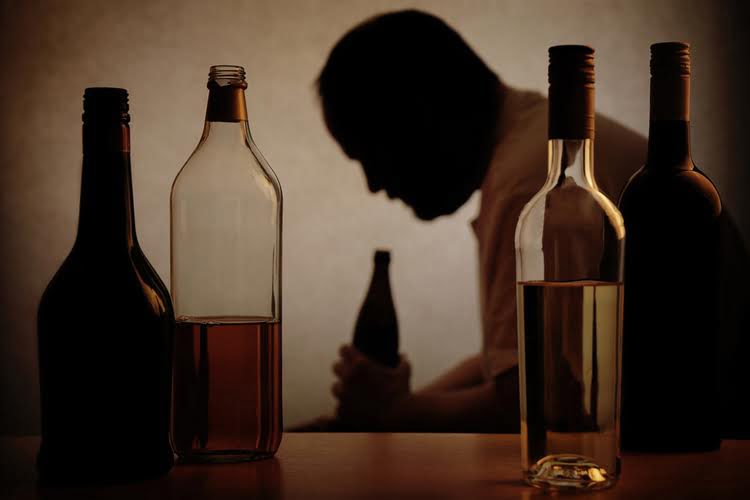How to Help a Spouse Dealing with Drug Addiction
Through it all, however, be sure to take care of yourself and your mental health. The above mentioned scenarios are referred to as triggers—the people, places, situations, and things that can increase an individual’s risk of relapse. However, this doesn’t mean you can’t implement and enforce healthy personal boundaries.
It’s a major red flag if a spouse requires a drink to start the day. Alcohol’s half-life usually means it is significantly reduced after five to eight hours. This will cause a person who is dependent to start feeling withdrawal symptoms in the morning, after a night of drinking. Your words may have a bigger impact than you realize and might be the reason they eventually seek treatment. Refuse to cover for them by bailing them out or making excuses for missing work.
Understanding the Different Treatment Options Available
If you find yourself lying, making excuses, or creating explanations for a partner that allows them to remain in denial, you are probably enabling rather than supporting. Because your inhibitions are lowered when you drink alcohol, you may be more likely to impulsively buy things without thinking through the consequences of those purchases. For instance, a person who is intoxicated may spend more money than planned at a bar. As a result, the time, effort, and resources formerly dedicated to life-sustaining activities, such as working and spending time with the family, are disrupted. Additionally, there are many tools you can find online to help you examine the nature of your alcohol use and your behaviors surrounding it. It’s important to note that our “Has My Alcohol Use Become a Problem?

Online platforms are treasure troves of detailed insights into different facets of addiction, including the nature of addictive substances and their impact on physical and mental well-being. Moreover, workshops and seminars present an opportunity to acquire firsthand knowledge from experts in the field, offering a space to learn and engage in discussions. Addiction is a complex psychological condition; understanding it is the cornerstone in helping your spouse overcome substance abuse. Let’s explore the science behind it and learn how to recognize the signs in your loved one.
How Substance Abuse Affects Relationships & Marriage
This includes guiding them towards professional help, such as therapy or rehabilitation programs, and promoting healthy, substance-free activities. Providing emotional support is also a part of this, where you offer a listening ear, drug addiction recovery empathy, and understanding, while also being honest about your concerns regarding their addiction. Crucially, support involves setting and maintaining clear boundaries that protect your well-being and are upheld consistently.
- Commit to the long haul while your spouse is in recovery and realize that your spouse will seem very selfish at first due to working on how to live sober and how to build self-esteem.
- In order to fully support a loved one in rehab and ensuing recovery, carve out personal time to do things you enjoy.
- Seeking support for yourself through resources or therapy can help you feel like you’re not going through this challenge alone.
- You might have promised them a vacation or any reward after they heal.
- The children’s welfare is another reason to assist the healthier spouse first, since that person will be able to ensure the kids are safe and stable.
Educating yourself about addiction and recovery processes can also significantly aid in offering informed and effective support. Coming home night after night drunk or high probably created endless arguments and a great deal of pain. This isn’t normal, but it’s a fact that the non-addicted spouse often has adjusted to. The accumulated pain can lead to resentment, bitterness, and a desire to escape the marriage. By the time someone goes to rehab, they’ve very likely emotionally drained their loved ones, leading to the serious question, “Should you stay with someone in rehab? ” Physical and psychological abuse, stealing, engaging in extramarital affairs, and other painful consequences of a spouse’s addiction only exacerbate the pain.
Substance Use Disorders: Signs Your Partner May Be Struggling with Addiction
Addiction can lead to separation or divorce, eventually destroying a couple by undermining trust. Many people who complete drug rehab and return home still face challenges as they transition from a life of addiction into a life of recovery and sobriety. Last but not least, make sure your partner is under the observation of a therapist for addiction therapy who provides an unparalleled continuum of support and tracks the progress of the addiction recovery. Frankly, you will not always have a way out of a difficult situation. So, it’s best to rely on people around you for drug addiction help whom you trust.
- More and more resources are becoming available to those struggling with substance use problems.
- Al-Anon, for instance, helps families of alcoholics with a program that’s similar to the 12 steps of AA.
- Remember, you can’t pour from an empty cup—you need to be healthy to offer the best support to your spouse.




